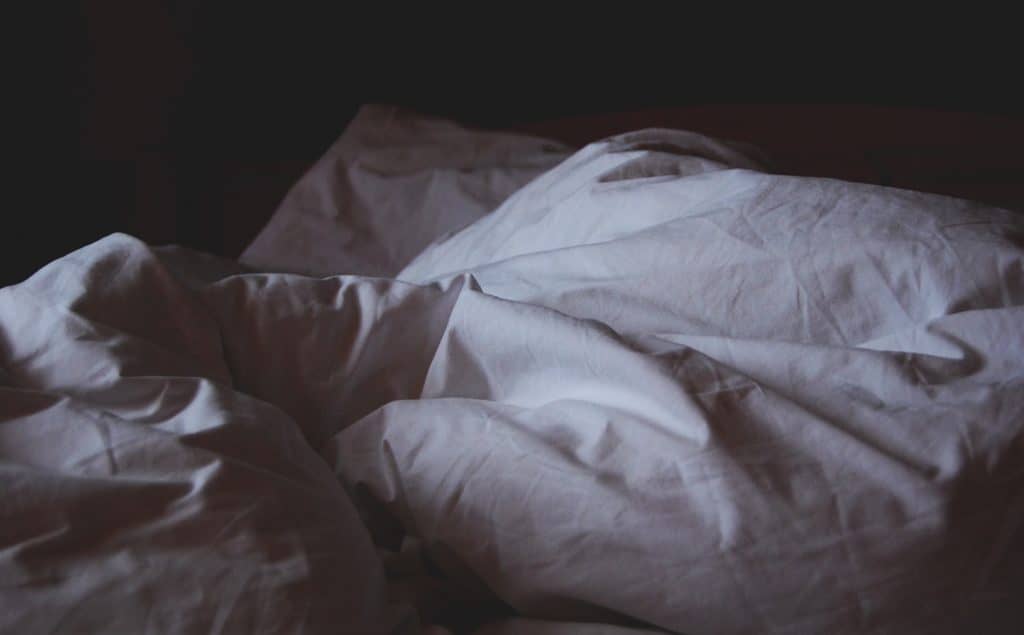
As you have probably noticed, when you don’t sleep well, you don’t feel well. This goes for your mental health as well as your physical health. Getting a good night sleep is one of the best ways that you can help yourself to manage. Let’s consider the relationship between depression and sleep..
There may be recommended product links in this post. If you click one of these links and buy, the small commission I recieve will help support me run this with depression. Thank you!
Depression is incredibly common all over the world, so there are a variety of ways that sleep habits can affect your depression. We’re going to look into some of the most common ways that sleep affects your mental health, and give you some simple tips that you can use to try and improve both your sleep and your depression.
The CDC recommends you get 7 to 9 hours of sleep a night in order to feel fully rested and get enough sleep to make it through your long day. Depression makes that difficult, and
Too Much Sleep
However, many people struggling with depression find themselves sleeping way more than they actually need to be, either because of their depression or because of the quality of their sleep.
Getting too much sleep can put you at a much higher risk of diabetes, heart disease and other physical illnesses. You’re also more likely to feel excessively tired and have a headache once you wake up, making it a lot harder to deal with the things that are making you depressed and anxious.
This can, in turn, make it even harder for you to feel fully rested and need more naps to get through the day. Make sure to check and see if any of your medications are creating a drowsy effect for you. If so, you might want to move when you take those to later in the evening to make them work with your schedule instead of against it.
Too Little Sleep
On the other hand, many other people struggle with insomnia when they are having more problems with their depression. If you don’t get the recommended amount of sleep, you are much more likely to struggle with depression and anxiety. In fact, the more frequently you wake up during the night, the more likely you are to develop depression because waking up that often alters the chemicals that your brain creates while you sleep and makes it almost impossible to get into the REM stage of sleep that you need.
Depression isn’t the only reason that you might be struggling to sleep. You might also be struggling to sleep because you are taking medicines at the wrong time and they are creating an effect of wakefulness, or you are exercising too late in the day. Make sure to keep any heavy exercise to early in the day in order to avoid keeping your heart rate and adrenaline rush from keeping you up at night.
Both too much and too little sleep will lead you to not getting high enough quality sleep, which means that you will wake up still feeling tired and groggy. You can work on improving your sleep with these easy tips in order to improve your mental health and continue a cycle of having a healthy sleep schedule.

Easy Ways to Improve Your Sleep Habits
Avoid Caffeine and Alcohol
Caffeine can keep you up long after you drink it – up to 8 hours later. This is why you should avoid drinking at any later than lunchtime. Alcohol, on the other hand, can make it easier to fall asleep but it makes it a lot harder to stay asleep. Avoid drinking it any later than four hours before you go to bed in order to avoid its problematic effects.
Set Yourself a Bedtime
Keeping a regular sleep schedule can do wonders for regulating your sleep. It helps your body to learn when to start producing melatonin on its own and trains it to understand what sleep schedule you actually need to be a functioning human being. By waking up at the same time every day, you can also make your mornings a lot easier to deal with, which we could all use on a day-to-day basis.
Build a Relaxing Bedtime Routine
One of the best ways to get yourself to relax before bed is to actively work on relaxing. It doesn’t have to be fancy. It just has to be relaxing for you. That means avoiding things that make you feel stressed, like scrolling Twitter or watching the news.
We’re all used to hearing about how yoga and meditation can cure our mental illness, and it can do wonders for helping you to relax enough to sleep well without taking yet another pill. You can also work on things like putting away your digital screens about an hour before you want to go to sleep, in order to avoid blue light overstimulating your brain, or adding a white noise machine to block out the sounds of your home or neighbors that might be keeping you up at night. It’s all about taking better care of yourself
Seek Treatment for Your Depression
Unfortunately, even having the best sleep habits in the world will not cure you of your depression. The best way to treat your depression is to actually treat it like the disease that it is. By doing this, you will be able to handle your symptoms a whole lot better and get better sleep in the long run.
In addition to that, a doctor will be able to help you figure out if there is another issue causing you to struggle with sleep. People with depression are three to five times more likely to develop disorders like obstructive sleep apnea (Ohayon 2003), so getting this checked out can be a major help to you. This will also help you to build healthy sleep habits and deal with the other symptoms of your other mental health issues to be a happier, healthier you in the long run.
Anxiety Disorders, Depression and Sleep
Here is a great guide which explains what anxiety disorders are and how they can affect your sleep. There are some great tips for better sleep and less anxiety too.
 Karl Perera is a fully qualified Life Coach, Teacher and Author of
Karl Perera is a fully qualified Life Coach, Teacher and Author of